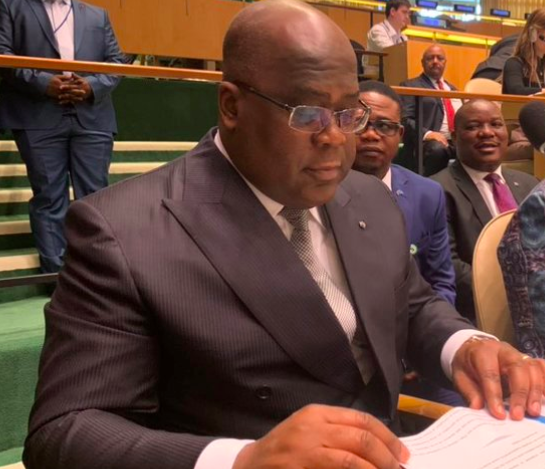Kinshasa – The presidents of Rwanda and the Democratic Republic of Congo will meet on Sunday in Angola for a fresh round of talks aimed at ending the conflict in the DRC’s troubled east.
Since its reemergence in 2021 the Kigali-backed M23 militia, which claims to defend ethnic Tutsis, has seized swathes of DRC territory, displacing thousands and triggering a humanitarian crisis.
In early August, Angola mediated a fragile truce that stabilised the situation at the front line, but both sides continued to exchange fire and clashes have intensified since late October.
Angolan President Joao Lourenco, appointed by the African Union as a mediator, voiced hope on Thursday that the summit in Luanda could lead to a peace deal.
“We are optimistic that this meeting eventually will produce all the signing or the decision for soon signing a long-lasting peace agreement between the two neighbouring countries,” Lourenco said during a visit to South Africa.
Kigali confirmed that Rwandan President Paul Kagame would attend the summit on Sunday, joined by his foreign minister Olivier Nduhungirehe.
The Congolese presidency also confirmed that Felix Tshisekedi would participate, despite the DRC’s previous refusals to negotiate with Rwanda and its calls for international sanctions against its neighbour.
“Our country continues to face persistent rebellions, including the aggression by the Rwandan army and the M23 terrorists,” Tshisekedi said in parliament Wednesday, calling the militants and Rwanda “enemies of the Republic”.
The capital of DRC’s North Kivu province Goma, home to about one million people and another million displaced by war, is now nearly surrounded by M23 rebels and the Rwandan army.
90 days
Early in November, the two central African neighbours launched a committee to monitor ceasefire violations, led by Angola and including representatives from both the DRC and Rwanda.
Kinshasa and Kigali a few weeks later approved a concept of operations document setting out the terms by which Rwandan troops will disengage from Congolese territory.
A previous draft dated in August listed the dismantling of a militia created by ethnic Hutus involved in the Rwandan genocide in 1994 as a precondition for Rwanda’s withdrawal.
Often portrayed by Kigali as a threat to its security, the Democratic Forces for the Liberation of Rwanda (FDLR) is one of various disparate militias fighting alongside the Congolese army against the M23.
The August draft was rejected by the DRC, which demanded that the withdrawal occur at the same time as the FDLR’s dismantling.
The final strategic document, seen by AFP, plans for a period of 90 days to “conclude the neutralisation of the FDLR and the lifting of Rwanda’s defensive measures”.
The two presidents last saw each other in October in Paris but did not speak, though they have maintained dialogue through the mediation of Luanda.
Home to a string of rival armed groups, the mineral-rich eastern DRC has been plagued by internal and cross-border violence for the past three decades.


